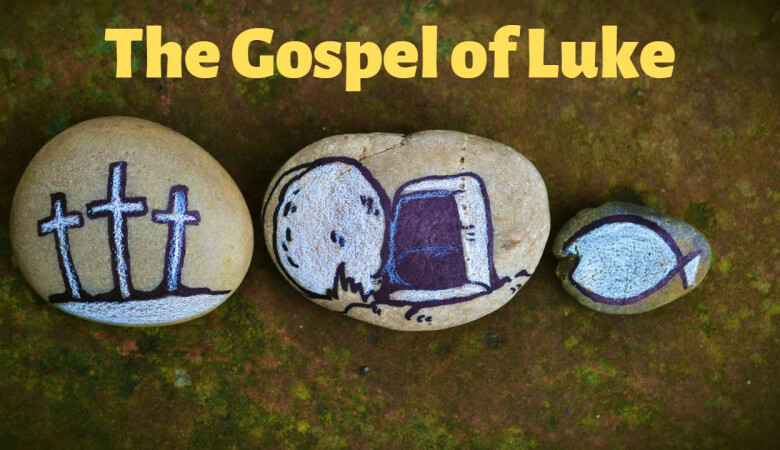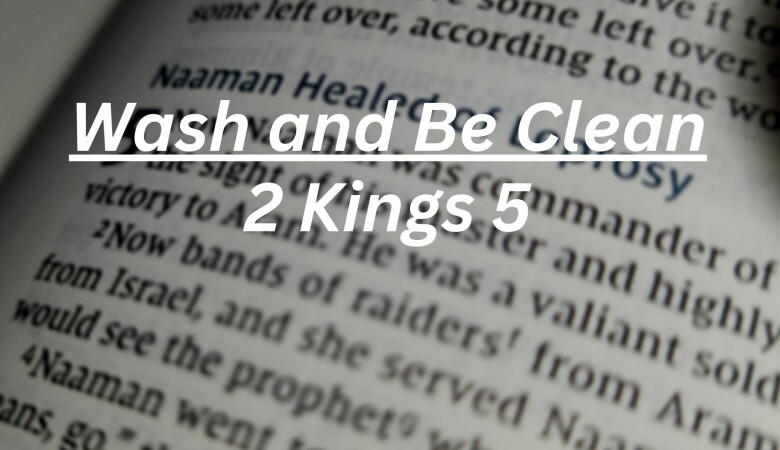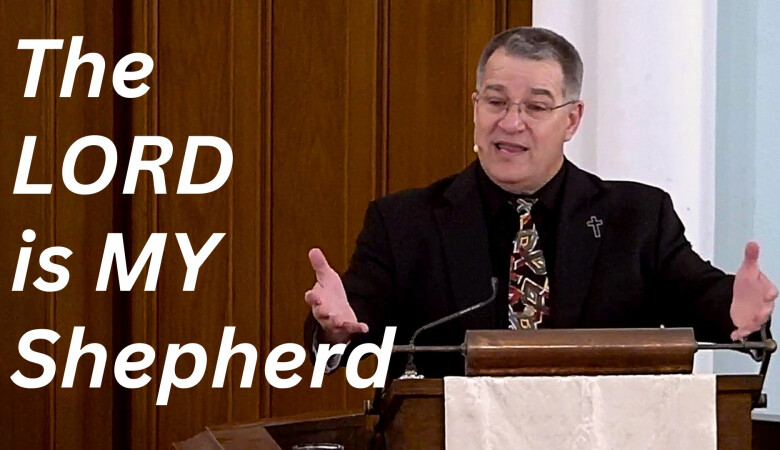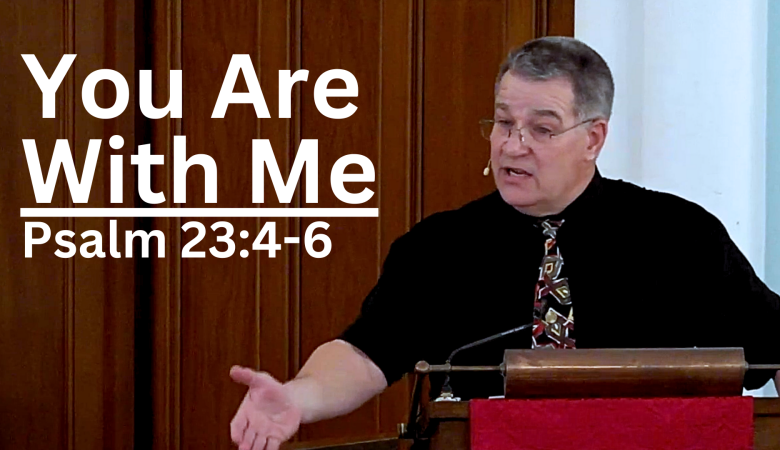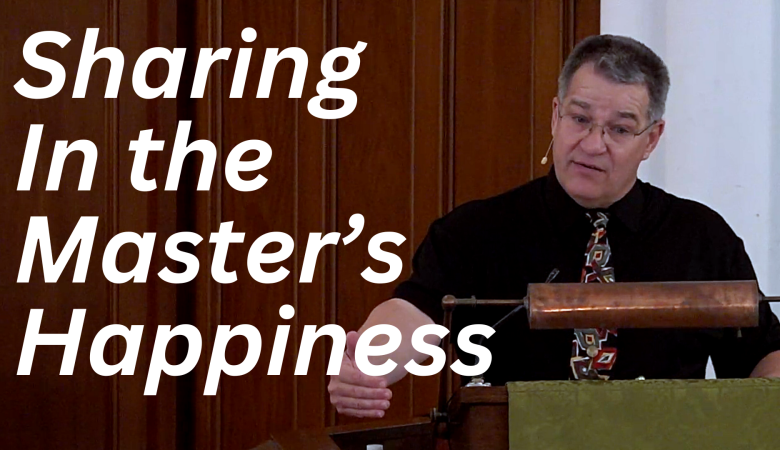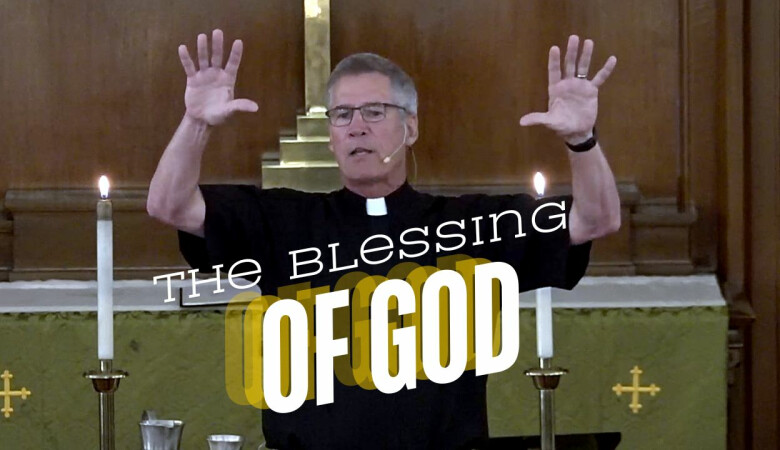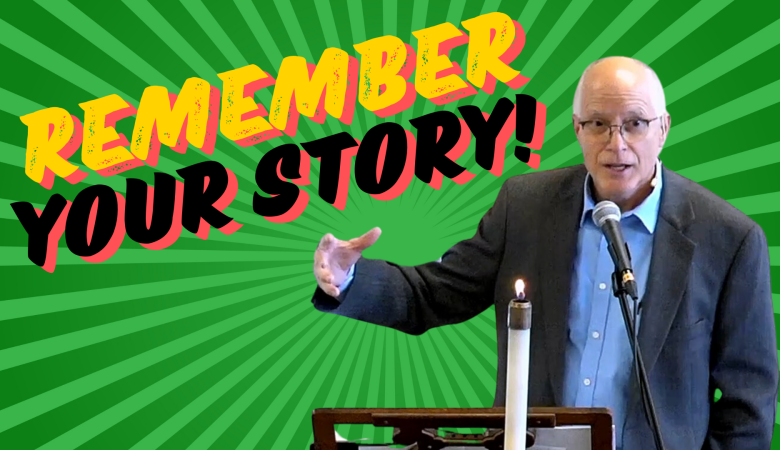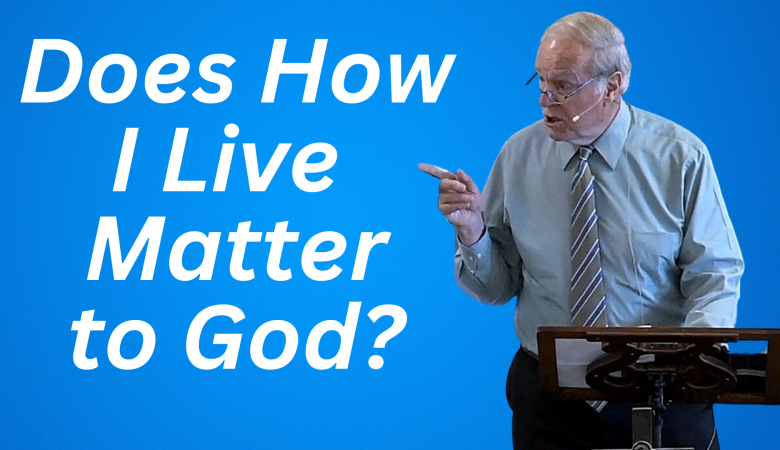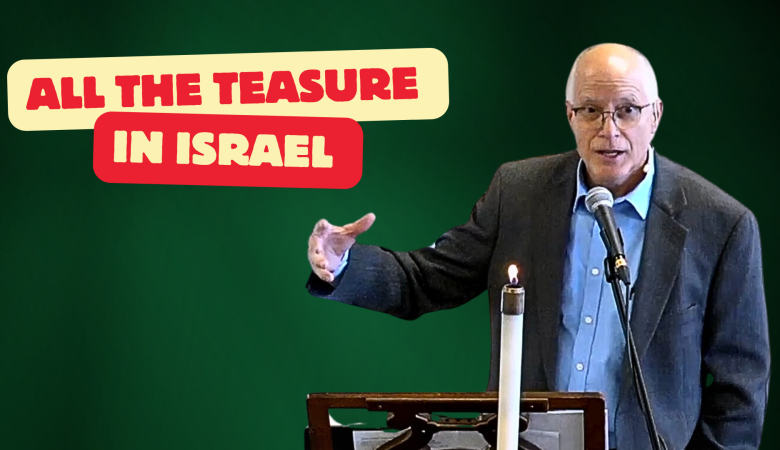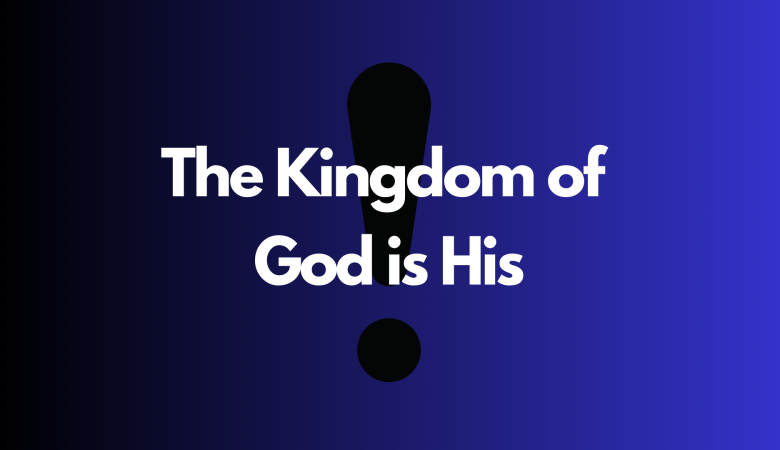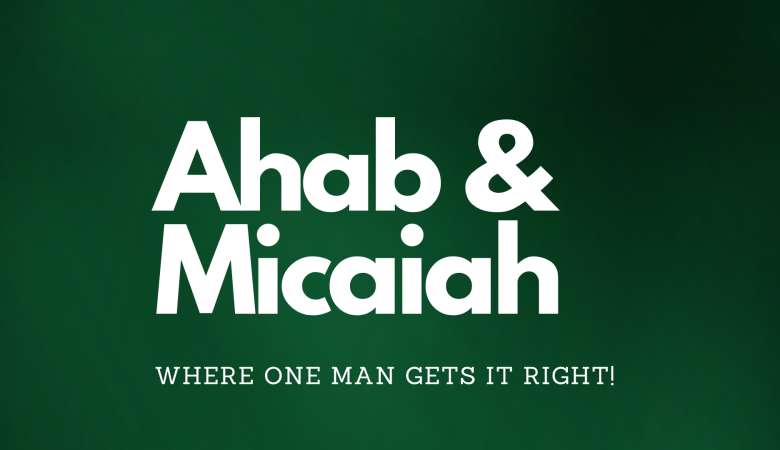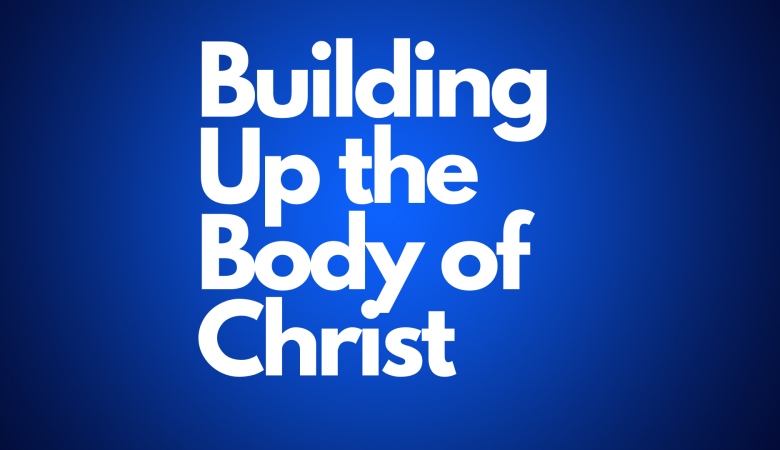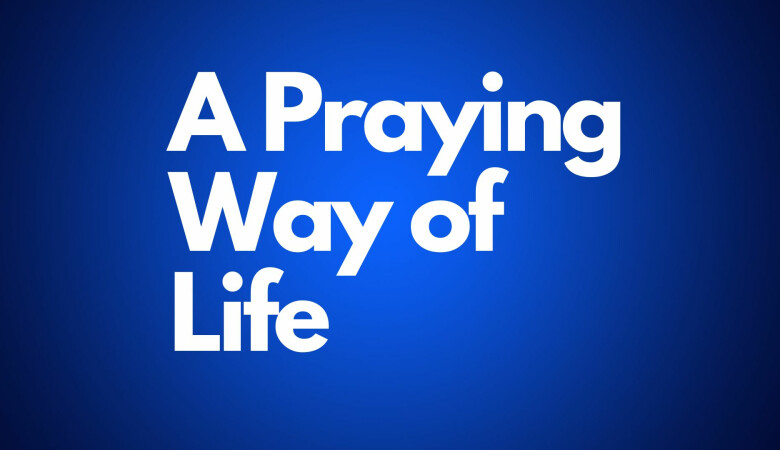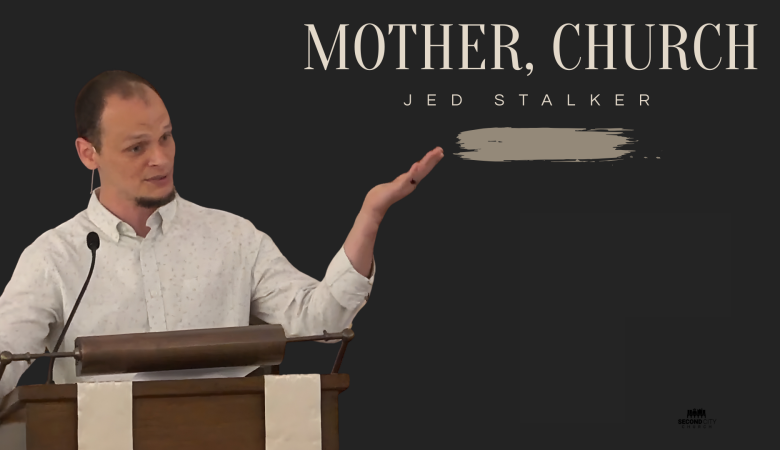Series: Guest Preachers
Jesus As Son of David
December 29, 2024
Passage: Matthew 1:1
Summary
As we celebrate Christmas, it's important to remember the true essence of the holiday: God's gift of Himself to humanity. Thoughtful gifts, like those from the Magi to Jesus, are not just valuable but also deeply symbolic, representing Jesus' kingship, priestly role, and sacrificial death. The Christmas story is the ultimate example of divine love and generosity, inspiring us to give thoughtfully and receive with gratitude. Mary's response to Jesus' birth, treasuring these events in her heart, serves as a model for us to receive God's gift with awe and thankfulness. Similarly, Scrooge's transformation in 'A Christmas Carol' illustrates the life-changing power of receiving a gift. This Christmas, let the true spirit of the season fill you with joy and inspire you to reflect God's love in your actions, whether through thoughtful gifts, kind words, or acts of service.
Transcript
We got our ecclesiastical wires crossed a little bit. The Gospel reading. And in a sense, the text for the sermon today is actually Matthew 1, verse 1. Here it is, the book of the genealogy of Jesus Christ, the son of David, the son of Abraham. So it certainly doesn't hurt that we heard, you know, from Luke as well.
I mean, it's Christmas time, right? Lots of good things going on. Please pray with me. Oh, Lord God, we give you thanks and praise, for you are good and your mercy endures forever. We pray that these people would be fed by you through this sermon and then also through prayer and the sacraments.
We ask, Lord, that you would be praised here today. Now, may the words of my mouth and the meditations of our heart be pleasing in your sight, O Lord, our rock and our redeemer. Amen.
Okay, so this is my first time preaching from a traditional Sunday morning service. So I'm thinking of this as sort of a collector's edition, right? If I'm still doing this in, like, 20 years, you can look back and say, like, I was there for the first one, right? But if I decide that this is awful and I'm not doing that again, and that's a live option, you can look back and say, like, I was there. Right?
Okay. So Peter has been preaching this very cool sermon series about the beginning of Genesis. He got us to Genesis 12, which is the introduction of Abraham. And then last week, he tied that into Advent and showed how in Matthew 1:1, right, Jesus is called the son of David, the son of Abraham. And he talked about how Abraham sort of prefigures Jesus in these very cool ways, right?
So today I'm going to take the other half of that verse, that designation of Jesus, and talk about what it means that Jesus is the son of David. Okay, so let's. So that's our question today. What does it mean that Jesus is the son of David? Well, let's raise the stakes a little bit.
So first we should think about how Matthew is the first book in the New Testament, right? So if you're just reading this book straight through, right, You've read the entire Old Testament, you know that people are in need of a savior. Well, you open up the New Testament, right? And the first time you see the name of Jesus, the first thing you learn about him is that he is the son of David, right? So that gets sort of pride of place, right? Obviously to Matthew, that's an important thing. And then also in Matthew eight more times, the phrase the son of David is used. So it's A, it's a big deal to Matthew. It's not just a big deal to Matthew, it's a big deal to the other New Testament authors as well.
So for instance, Luke, the author of Acts, has the apostle Peter in his famous sermon in Pentecost, in Luke 2, he preaches about Jesus as being a descendant of David and in really interesting ways. Then as dawn read for us, so, well, the Apostle Paul begins his Epistle to the Romans by talking about Jesus as the descendant of David according to the flesh. Interesting phrase. And then actually, so it's not just that the New Testament begins in Matthew with a reference to Jesus as the son of David. It actually ends with a reference to Jesus as the son of David.
So in Revelation 22, John the Seer has this vision of Jesus and Jesus gets this speaking role, the risen and glorified Jesus, and he refers to himself there as the offspring of David. Right? So all throughout the New Testament, this identification of Jesus as the son of David is apparently this really important thing. So let's talk about it, right? What does it mean that Jesus is the son of David?
All right, I'm going to split my answer up into three main points. I have one sort of big point that's the really important one. And then there's two sort of subsidiary points, right? So if you're a note taker, rest easy. Here they are.
I have three points and they all start with P. Because we're Presbyterian, that's the way we do things, right? So point one, the promise of God. It's important that Jesus is the son of David because it fulfills the promise of God. Point two, partial fulfillment, right?
Fulfills the promise, but only partially. Right. And then part three is peculiar people. Okay, so let's get into this. So Jesus is the son of God. Excuse me, the son of David. And my first point is that this has to do with the promise of God. And this is really, really important. So this is the point to remember, as it were. It's kind of the story of salvation in a nutshell, as it were.
So maybe flip back your Bibles to the Old Testament reading that we did. So two Samuel, chapter seven. This is on page 305 in your pew Bible.
This is where if you remember the story of David. And by the way, even if you don't know anything about the Bible, you know a little bit about David because he's the David of David and Goliath, right? You've heard that phrase. So David has already done some of the stuff that we remember. Him, for he's done the Goliath thing.
He's slain the giant, right? He's eluded Saul, the first king of Israel, right? And he has been raised up from a shepherd, a pretty lowly person on the social scale, to the king, right? So he's done all that stuff. The incident with Bathsheba, the other big deal, as it were, in the David narrative, has not yet occurred.
Interestingly, that begins in second Samuel, chapter 11. So just a couple of chapters after this. Anyway, so David is. David is able, for the first time in a couple of decades, one thinks, right? To rest.
That's the beginning of this chapter, right? 7:1. Now, when the king lived in his house and the Lord had given him rest from all his surrounding enemies. So he sits back and he kind of says, you know, the Lord has been really good to me. And he thinks this very cool thing.
He thinks, I want to build a house, a temple for God so that God can dwell among his people. I want to build him a permanent home, okay? As opposed to this movable tabernacle that God has been in. So he comes up with this very good and I think this very admirable idea. But then he does the right thing again. And he runs this idea by his buddy Nathan, the prophet. So he asked Nathan to come over. He tells Nathan, hey, I want to do this thing. And Nathan says, do it, man. Right?
The Lord is with you. This is verse three. Do all that is in your heart. But then verse four begins with the word but, right? But that same night, the word of the Lord came to Nathan, right?
So he comes back with another message for David, and that message is canceled, right? Don't actually build the temple. Don't even call up the architect, right? That's not a thing that you're able to do. It's got to be a pretty crushing moment for David, right?
He's not allowed to do this big, impressive act of worship for God that he's wanted to do. But then there's another turn to this story, right? So David isn't just told, don't do the thing that you wanted to do, but there's this really interesting other thing that happens instead. So let's go on to keep reading. So this is verse 11 in chapter 7, there is that, right?
Anyway, he goes on to say, I will give you rest. So this is God speaking to David through the prophet Nathan. It says, I will give you rest from your enemies. Moreover, the Lord declares to you that the Lord will make you a house. How interesting, right?
David says, I want to make the Lord a house. And God says back to David, no, no, no, no. If anybody's going to build the houses around here, it's going to be me, thank you very much. Right? You don't serve God.
God is going to serve you. Do you hear this? And then it goes on, right at the end of the chapter, verse 16, right? And your house and your kingdom shall be made sure forever before me. Your throne shall be established forever, right?
So in the Hebrew, just like in English, it's a little bit archaic, but we still do say this, right? House can mean either a physical dwelling place or it can mean like a family, a family line or a lineage, or even like a dynasty, right? So God says, you don't build me a physical house, I'm going to build you. David doesn't need a physical house. He's already got one. He said that already, right? But he says, I'm going to build you a house. A line that's going to last forever. This is an eternal promise that God is gratuitously making, right? David isn't going to God and saying like, hey, could you please bless me? But rather, God says, hey, I'm blessing you regardless of whether you're asking for it or not, okay? So God is saying to David that his throne is going to last forever. Well, this is pretty awesome for David. And it's really good news for Israel too, because David's a great king, right? And you would think that his line would therefore be great kings, right?
You would think that forever, right? Means that there would be a lot of stability, right? And prosperity and all kinds of good things for the people of Israel. So you think, right? And it's also super impressive in terms of literature, right?
God speaking to David and saying, you don't build me a house, I build you a house, right? If this was a movie, this is where the credits would roll, right? We would say, happy ending, hooray. David's line is going to rule forever. But what about practicality, right?
What about historically? Because if you're a reader of the Bible, you know that the story obviously doesn't end here, right? We have the remainder of the book of Samuel, and things get pretty dicey for David there for a long time, right? And then we have the books of Kings and Chronicles, and we know that the line of David doesn't historically last forever. There are no Davidic kings on the throne by the end of the Old Testament period, right?
And you've got in the, in the prophets, both the major and the Minor prophets. People are looking and asking God, what happened to the promise, right? Where's the divinity king? There's actually a super interesting part in Zechariah 12 if you're interested. Look at that later.
You note takers. Write that one down. We should say David's line does last for a while, right? Especially in the southern kingdom of Judah. It's like a 400 year reign of David's line, which is really impressive, right, for one family. I mean if you think about it, the United States as a country has only had like a 250 year go. But so 400 years is a long time historically speaking. But it's not forever, right? And that's what God promised twice, right, in this one verse here at the end of the chapter. So the question, by the time you get to the Old Testament period, if you're a faithful Jew and you know your scriptures, is simply this, if there's no Davidic king, well, are the promises of God true?
Can you trust God? It doesn't seem like he's doing what he said he would. Do NT Wright, the great Anglican New Testament scholar, he says this about the Jews in Jesus time. Quote, although the Judeans were now back in the land from Babylonian exile, the full glorious sweep of prophetic promises about Israel's restoration had not yet materialized. The 12 tribes had not been regathered.
There was no new Davidic king. The nations were not swarming to Zion to worship God, and unrighteousness still abounded. Had their God forsaken them. So when Matthew opens the entirety of the New Testament by calling Jesus the son of David, he's answering this really profound question, right? So how can God be faithful if he hasn't fulfilled his promise to David?
Well, here's the thing. If Jesus is the true son of David, that means that God's promises are fulfilled, right? God hasn't failed. The promises are true. God will establish the perpetual line of the Davidic kings.
But then you're thinking, wait a second, Jesus didn't have any kids, right? How can the Davidic line go on? So well, here's where things get crazy, right? Because the Davidic line sort of stops but then continues forever in Jesus. He's the son of David, he's not just one of the sons of David, right?
So the kingship gets to be perpetual. Why? Because Jesus is perpetual, right? Jesus Christ is the same yesterday, today and forever. That's Hebrews 13:8, right?
He is everlasting and therefore his kingship is everlasting.
So now do you See what's happening? This is almost so big that we can miss it. So God says in Second Samuel, David, I'm going to build you a house and it is going to last forever. And then he does it. God builds the house.
He builds it by himself. Let's go back to the text a little bit. Let's look at verse 12. Here it says, when your days are fulfilled and you lie down with your fathers, I will raise up your offspring after you, who shall come from your body. And I will establish his kingdom.
He shall build a house for my name, and I will establish the throne of his kingdom forever. I will be to him a father, and he shall be to me a son.
Okay, so this is talking about Solomon, right? We think we readers of the Bible, right? But isn't it also about Jesus? Right? The one who is greater than Solomon. The one who's going to build a temple that's greater than Solomon's temple. Right? One scholar, this is a guy named Palmer Romitzen. He says this quote, the declaration of Second Samuel that David's son is also God's son, provides adequate basis for later developments which point toward a divine Messiah. Isaiah speaks quite clearly of a child born to sit on the throne of David, who shall be called Mighty God. That's Isaiah 9, 6. The Psalmist addresses pointedly Israel's king. Quote, thy throne, O God, is forever and ever. That's Psalm 45. Eventually, the history of redemption proves that in a unique sense, David's son is God's son.
End quote. And that's Jesus, friends. That's the way Matthew opens his gospel. David's throne is God's throne and Jesus is enthroned there. God will build the house, and in Jesus, God himself comes to dwell in the house.
This is the gospel. This is the message of the whole Bible in two lines. 1. God is going to do the work of salvation. That sums up the whole of the Old Testament.
God is going to do the work of salvation in Jesus. That's the message of the entire New Testament. There it is. Right, you with me? That was all point 1.
Maybe I should stop there. Let's keep going. So, part two, Partial fulfillment. Okay, let's get back to David and how he felt when Nathan told him, sorry, man, you can't build the temple. As a sad couple of minutes right before God continued on to make his other promise.
God won't accept your devotion. Well then think with me also to what? You know, these two things, these bookends. I'm going to build you the house. Right.
And it doesn't happen until we get to Matthew, right? And Jesus, right? Think about all of the Jews who lived in the time between then, right? There's the promise that there's going to be the perpetual line. But you don't see it, right?
How do those people feel? It just wasn't literally true, at least in their day. What did life feel like for those guys? I think I sort of know how it felt for them, right? Because I think it sort of feels that way for me sometimes.
Does it feel like that for you sometimes? Let me put it a little bit strongly, right? Do you feel saved all the time?
I don't. So think back with me to the situation that the faithful Jew found himself in. In Jesus time, it looked like the promises of God had failed. And consider when Matthew wrote his gospel, all of the events of the gospel had already occurred, right? So when somebody's picking this book up and reading about Jesus, who is the son of David, and thinking like, ah, that means that he's the new king, right?
They're already thinking, wait, the guy who died, that guy, right? Imagine going to a faithful Jew, like a guy like Simeon, right? Somebody who's waiting for the consolation of Israel and saying to that person like, good news, the true Davidic king is here. God is faithful to his promises and we are saved, right? That guy's going to say, like, great, let's go, where is he?
And you're going to say, oh, actually he was here a little while ago, he's gone now. He's in heaven at the right hand of God. And he's going to say, I wanted a live king, one that I could like look at and he would do stuff in the world. It's a hard sell, isn't it? There is a king, but he's not here. And if you're like me, it's a hard sell for you too, right? Sometimes when you're reading the Bible, sometimes it feels like the promises of God aren't really trustworthy. Or if they are, it feels like they are in such a way that it doesn't actually impact your life in a day to day basis. Think about it, right? Jesus is the Prince of peace. It says in that great chapter in Isaiah, right? Have you looked at the news? Not very peaceful, right? Or at least not very kingly, one of the two, right? Or Jesus says this, right?
By this all men shall know that you are my disciples if you love one another. I'm thinking like, okay, Jesus, have you looked at like Twitter, right? I mean, it Just doesn't seem like the promises of God are very active in the world.
Okay. But I think we can take heart in seeing the biblical manner of the fulfillment of God's promises. In looking at this, we can learn from the Bible and specifically from this instance, that we can trust God even if it doesn't look like the promises are actively fulfilled at that time. Right. Because the Bible is full of these long agonizing periods of waiting. Right. So if you find yourself in a long, agonizing period of waiting, you're right. In the biblical narrative, man, you're doing the right thing, presumably. All right, the takeaway here to this second point, right? Though God is conquering all and it is going to be good, and though he has made good on those promises in Jesus already, well, the story isn't over yet.
Salvation is here, but it's not fully here. The promises are only partially fulfilled. Right. That's point two.
Okay, on to point three.
Peculiar people. And here I want to switch gears. So I've been talking about Jesus as the son of David in regards. Davis, David's office as a king. But now I want to consider what it means that David is the son of David.
Excuse me. That Jesus is the son of David as regards David's character. Because David is a character, right? He's so. He's the greatest king of the Old Testament.
He's also, I think, the greatest character of the whole Bible. Exclude Jesus. He's kind of in a different category. Right. But this guy, he just jumps off the page.
He's this totally living presence. I'll make it a bigger statement, Right. I don't think he's just the most memorable character in the Bible, but I think he's the most memorable character in all ancient literature. Right. Kemper might disagree with me back there, but David's a way more rounded character than Odysseus.
Right. Or Achilles or something like that. Right. And of course, in the providence of God, this is not an accident. Right. God absolutely could have made these magnificent promises to one of the boring kings, like Rehoboam or something like that. He doesn't. He makes it to David. Okay. That's why I have that Yeats quote in the Bulletin about a king who's a wild and foolish laborer to do and do and never dream.
Well, David's not that kind of king. He's a great king. He's every inch a king like Lear. Right? So when the New Testament authors insist that Jesus is the son of David, I think they're primarily making this theological point, right?
The one that I've been trying to talk about. But I think there's also something else going on. And I think that something else might mean a lot to us personally, because when Jesus is exalted as the son of David, it makes us remember the person of David. And the person of David is just blisteringly alive. The literary critic Harold Bloom, who writes pretty perceptibly about the Old Testament, he says that David is the most theomorphic character in all of literature.
Theomorphic, it's hardly even a word. But it means God shaped, right? And David is shaped by and like God in every aspect of his life. Yeah. He has big failures, right?
But then he repents magnificently, right? I mean, if you keep reading the text, I don't have to go. I don't have time to go into all the different facets of David's life. But if you don't know his story, just think about this, right? This string of nouns, right?
Poet, warrior, lover, king, right? And you're pretty close to what this guy was like. He was just a big deal, okay? So Jesus is the son of David, and David is totally alive with the spirit of God. So I think David, this extraordinary person, this extraordinary character is a really fitting person to represent.
The blessedness that comes out of a relationship with God is one that makes you more alive, right? One of the church fathers famously said that, quote, the glory of God is a human being fully alive. And I think we can really see this in David, right? I think the Bible. One of the messages of the Bible is that when you draw closer to God, you become more fully alive, you become more fully yourself.
You become more fully the person that God made you to be. Right? We see that in David. And even. It's even more than that, right?
Because in the wisdom of Scripture, we actually get a picture of David not just fully alive, but also not fully alive. Because the story, we get a picture of extreme old age in David. And that's actually pretty rare, right? In the Old Testament, in the Bible in general, right? So we see David at the end of his life making bad decisions.His body is not working anymore, right. He can't get warm, Right. My wife can identify with it. So we see in David the peculiar, like, heroism that comes from just getting old, right? And some people in this congregation can really identify with that, I think.
Right? What do I mean by all this? David is so multifaceted that I think we can all identify with him in one way or another. And so when Matthew opens his Gospel that's saying that Jesus is the son of David. I think he's kind of saying that all of our character arcs, all of our character tics, right. Are sort of blessed in this guy, right? All of our big feelings, even our struggles and our doubts. Have you read the psalms? David wrote most of those, right? Because David shows us what it is to be a person wholly centered on God and Jesus is his son.
I want to end with a story. I'm going to do this quickly. I was trying to think of a person who embodies the two kinds of, or the two sides of what the son of David thing feels like, right? So that's the partial fulfillment on the one side and then the peculiar people thing on the other side, right? And I thought of this person who's one of my absolute favorite people of the 20th centuries.
20th century. And also one of my favorite poets, the great poet Marianne Moore. I don't know if you've heard of her, but she's lovely. You should look her up afterwards. So she makes the world a better place.
But I would not wish her life on you or anybody. Right? So let me just tell her story real fast. So she had everything, so it seems that looked like she was headed in this trajectory for this really fulfilling life, right? She had this very attentive religious father, a very loving mother.
Well, you know, appearances can be deceiving, right? So her dad, I said he was religious. Well, eventually he stopped going to work because he just wanted to stay home and read the Bible all the time. Kind of a nice thing, right? But you do have to go to work, right?
So some people would drop by the house and say, like, hey, Mr. Moore, maybe you should go to work. And he said, yeah, that's interesting. And he didn't. He just kept staying at home reading the Bible, right?
So eventually this guy gets put in an insane asylum and he. So he meets with his daughter, never that she remembers in her entire life, right? And by all accounts, he had this very peaceful existence. He was a model citizen in the insane asylum, except for one incident where he. He cut off his hand because Jesus told him to.
Right? So imagine that sort of hovering over you, right? That's what religion means, okay? And then I said that Moore's mother was very loving. Well, love means different things for different people, right?
So she was actually so attentive, right. That. That More couldn't be away from her for like a 24 hour period or else both of them would sort of start to freak out. And before More was out of her teens, it was much more like Marian Moore. The poet was more raising her mother than the other way around, right?
So it's. It's this very, very unhealthy relationship. And by the time Moore's mother dies, when Moore herself is like 60, Moore has never had a full time job because she has to dump all of her emotional energy into her mom. And also, she's never had a romantic relationship. She just doesn't have time for anything in her life except her mom.
And interestingly, poetry. So think about what you would be like if you were kind of stuck in that situation. I would be this knot of unhealthy sadness. She became this magnificent human being, totally lovable person, right? And she wrote these astonishing little poems.
The great literary critic Hugh Kenner says that her poems, quote, bespeak a minute obligation to fact. So what do you do when you're in that situation? She observed the world, she thought about it, and she created these incredibly intricate poems that are nothing like you're going to read anywhere else in the world. I love her poetry. I don't understand any of it, by the way.
She grew up not far from here in Carlisle. She taught at the Carlisle Indian School. When that was still in operation. She taught Jim Thorpe. She said that he was a very nice young man, but not attentive to his studies.
What are you going to do? So eventually she moves to New York with her mother and she becomes world famous. This little person who never goes out and does anything. Basically, she's corresponding with these poets and the poets are like, no, this guy's good. And so they send her work out to be published.
Eventually there's this magnificent picture of her eating breakfast in a diner with Muhammad Ali because a newspaper wanted them to get together and write a poem. And they did. It's not very good. She threw the first pitch out at Dodgers games.
She was on the front cover of Life playing ball in the street with kids in Brooklyn. She's wearing a tri cornered hat like George Washington, as one does, right? So she would also. She was super nice. She lived in poverty all the time.
But she would. If you came to visit her to interview her or something, she would pay your cab fare. She had this jar of quarters. And she would write long letters to everybody that she received letters from. And she'd get hundreds of letters a day, okay?
Valerie Elliot, the wife of T.S. eliot, wrote her a letter saying, try to be a little ruthless with your admirers. I'm afraid the instinct of self preservation was left out of your Makeup. And I think that this was true, right? God left the element of preservation out of her makeup and out of her wounding in this difficult situation that she was in comes this beautiful personality, these astonishing poems, right?
She makes the world a better place. She was a poet like David. She was eccentric in this astonishing way. And by the way, the word eccentric, it means off center. And so I think the right and the biblical way to get off center, right, is to stop being self centered, let Jesus kind of push his way in there, right?
And your self slides to the side and you won't sort of fit in the world as well anymore, but you'll fit really beautifully in the church. Okay, so I'm just going to jump to the end. I had some other stuff I'm saying, but I don't think it makes any sense anymore. I want to close by reading part of Moore's obituary. All right, so this is from the New York Times in 1972. It says here, final honor was paid yesterday to our beloved Marion the poet Marian Moore, who died here Saturday at funeral services in the Brooklyn church she had attended for 34 of her 84 years. A disparate throng sat in long curved pews of the sanctuary, reflecting the catholicity of Ms. Moore's friendships. The mourners included blacks and whites, the very elderly and the young, literary persons, booksellers and of course, baseball personalities, including the president of the New York Yankees. Ms. Moore had been a punctual and regular worshiper at Sunday morning and Wednesday evening prayer services. The pastor said afterwards, once leaving a meeting with former President Lyndon B. Johnson in great haste to make the Wednesday meeting into which he walked at 8:01pm one minute late. The closing prayer was one that Ms. Moore had written for the funeral of her own mother.
So this is the prayer. One by one thou dost gather us out of earthly light into heavenly glory, from the distractions of time to the peace of eternity. We thank Thee for the labors and joys of these mortal years. We thank Thee for our deepening sense of the mysteries that lie behind our dust, and for the eye of faith which thou hast opened for all who believe in Thy Son to behold through the darkness, the shining future. Amen.
Am I right, friend? Do you want the kind of faith that could write that prayer? Because I do. I feel like to get there, what do we need to do? We need to trust that God is with us in the times when he feels.
When it feels like he's not actually there. And I think that we can do that. Because God is faithful to his promises in Jesus, who is the Son of God and the Son of David, right? Please pray with me, O Lord God, who is like unto you, who keeps his promises, who shows mercy to his people, generation after generation. We praise you for your goodness. We ask that you would be with each of us throughout our day. Help us to love you and to do your work. We pray these things in Jesus name, Amen.
Series Information
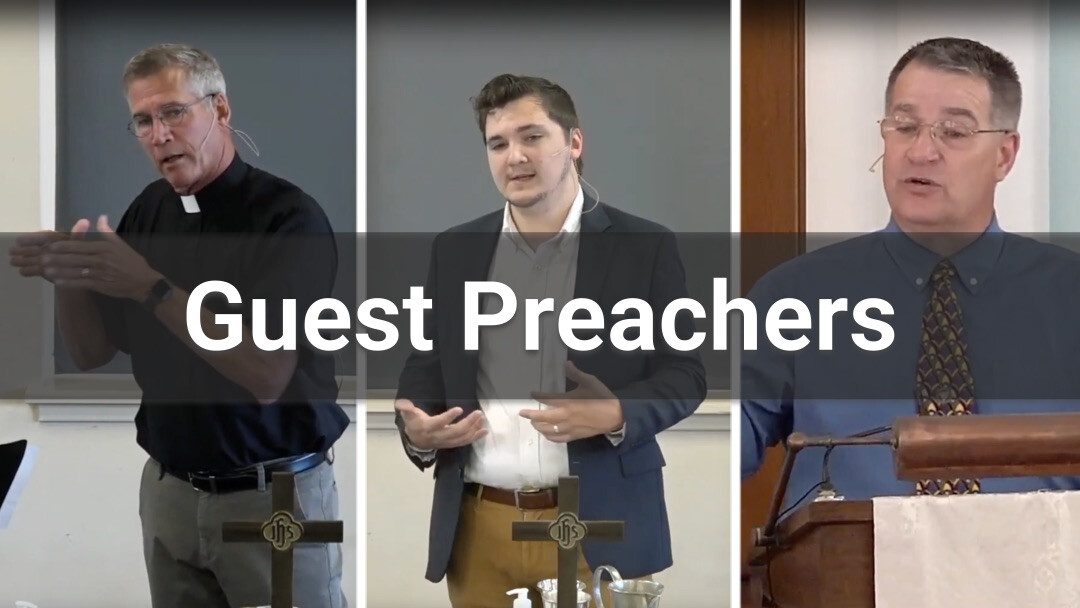
When Pastor Peter is away Second City Church is blessed to hear other men God has gifted to preach.

